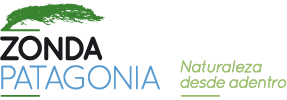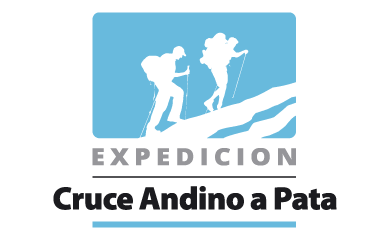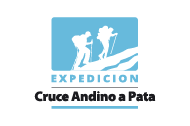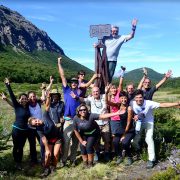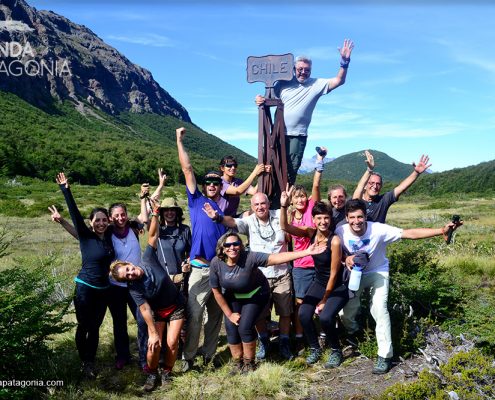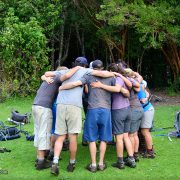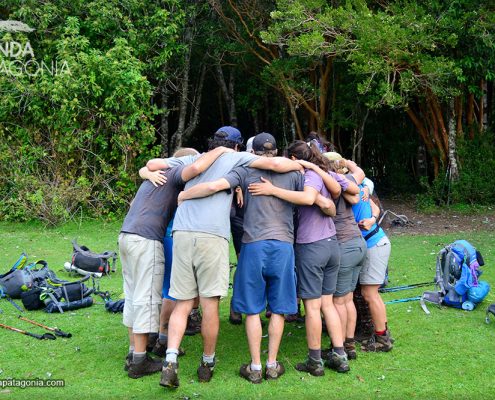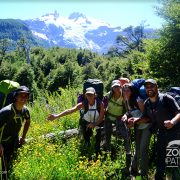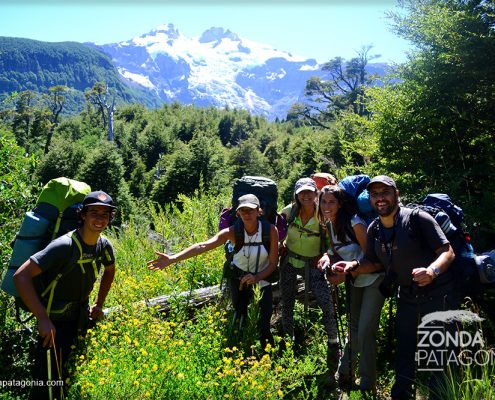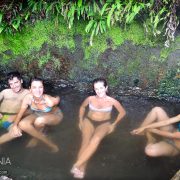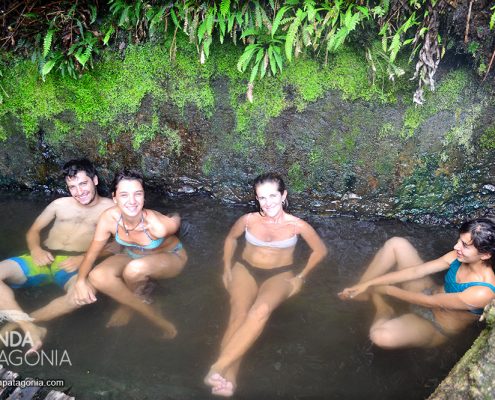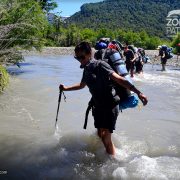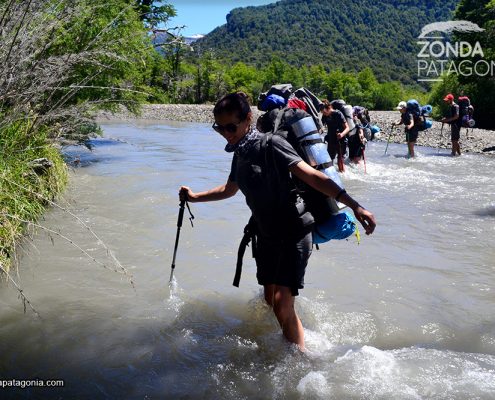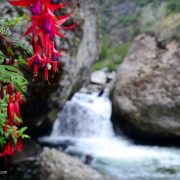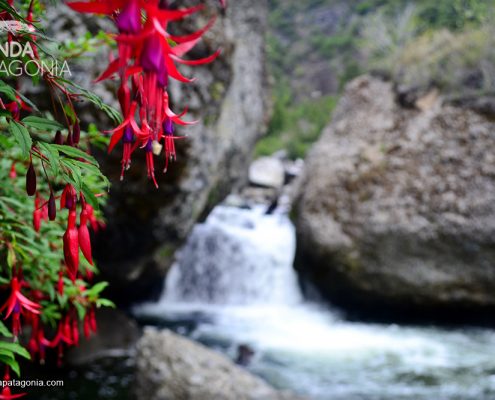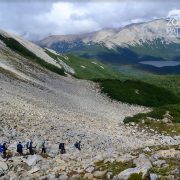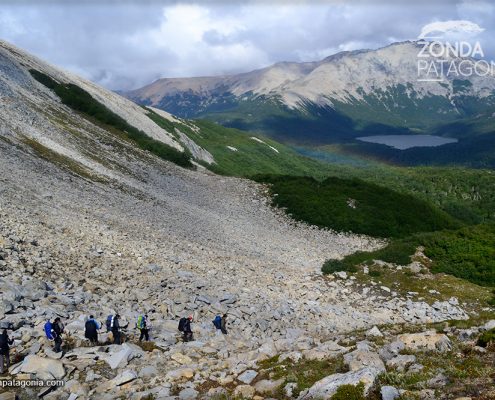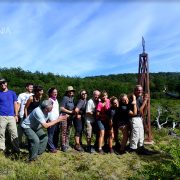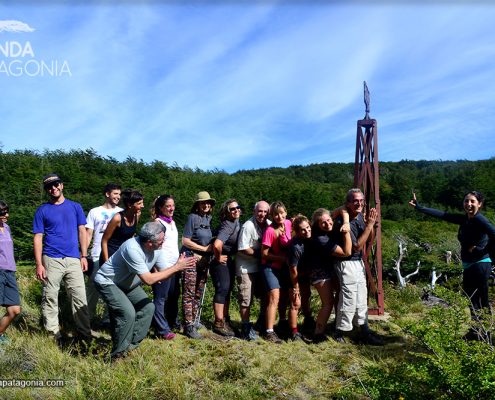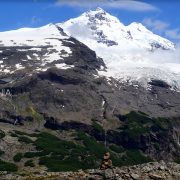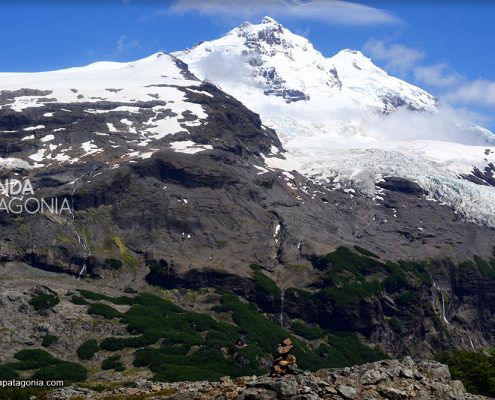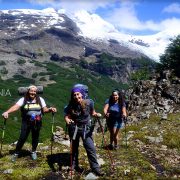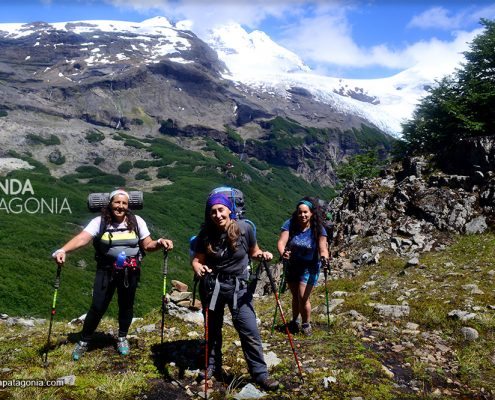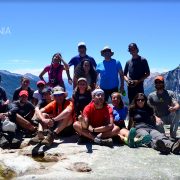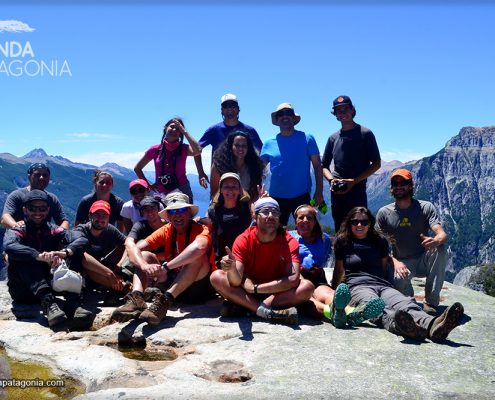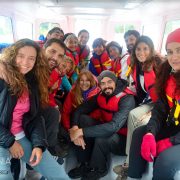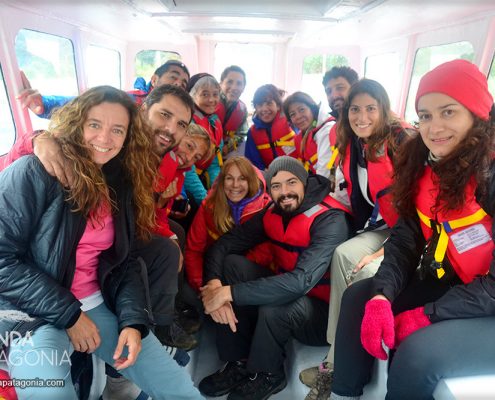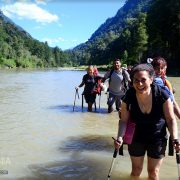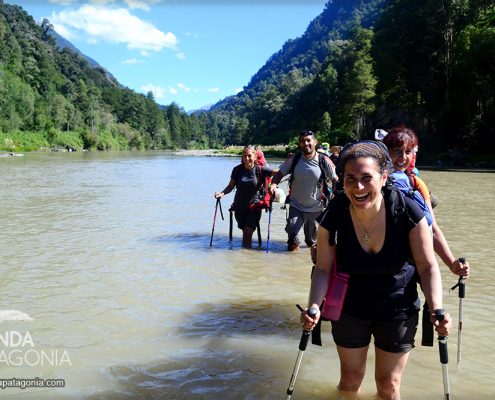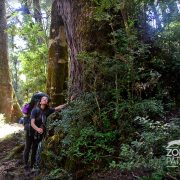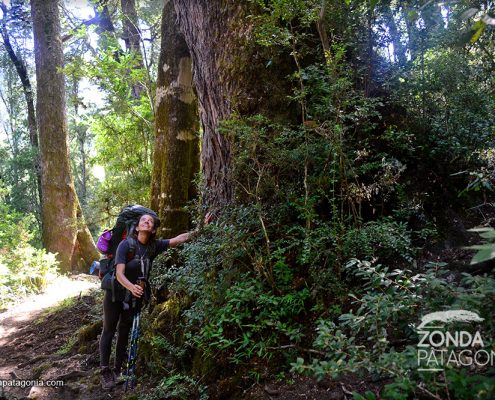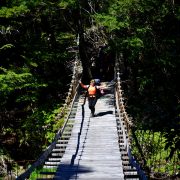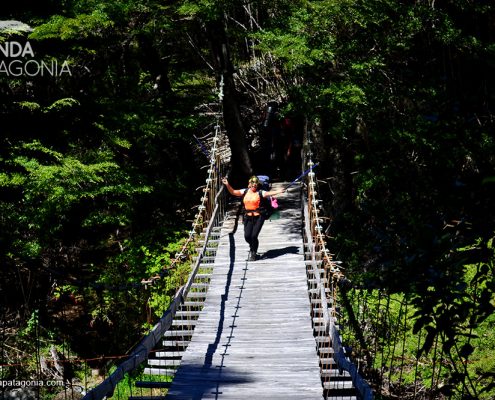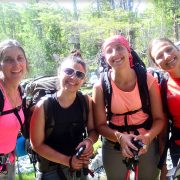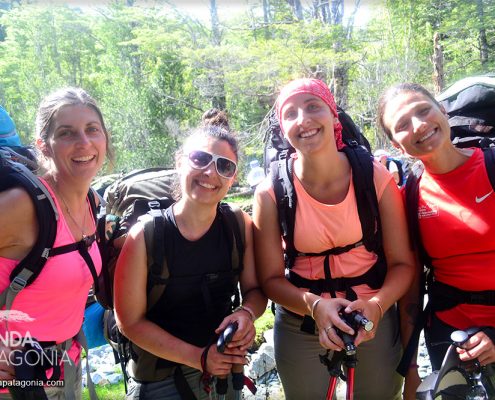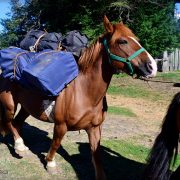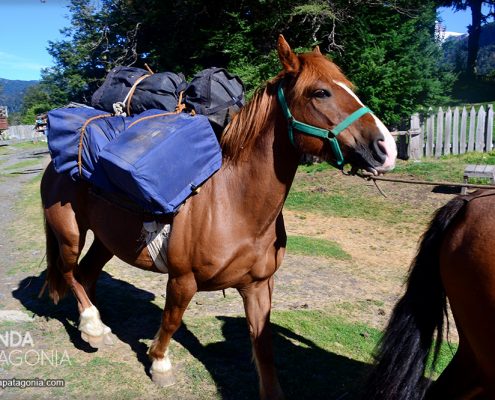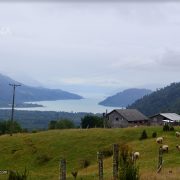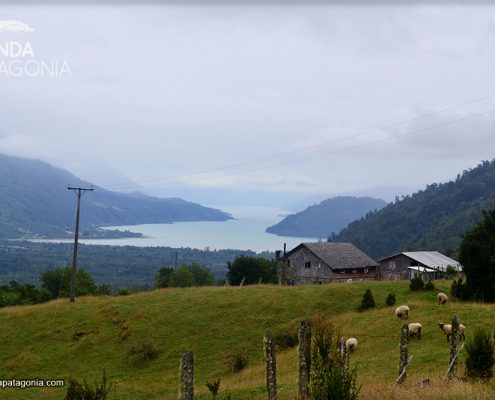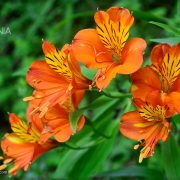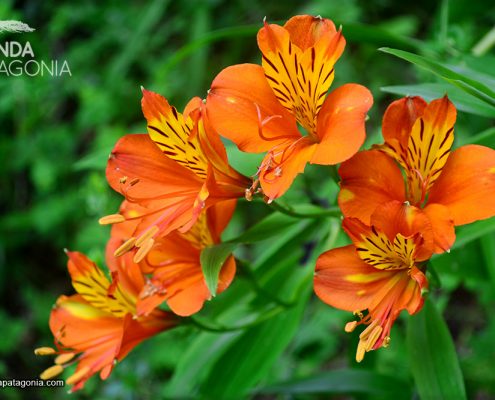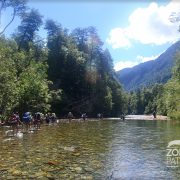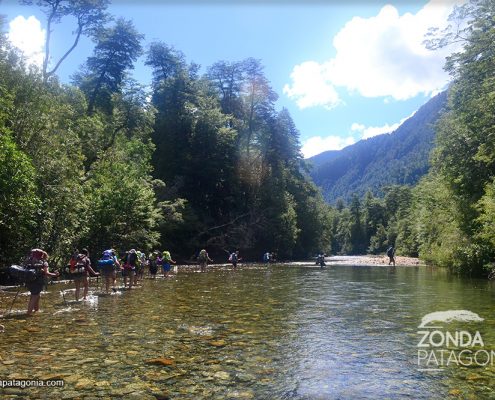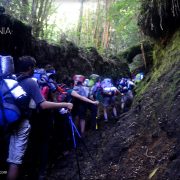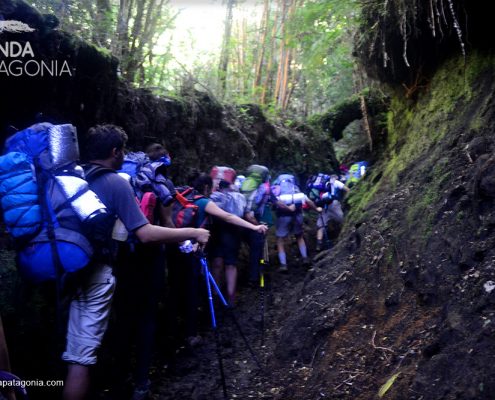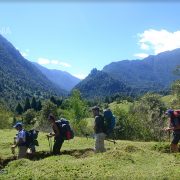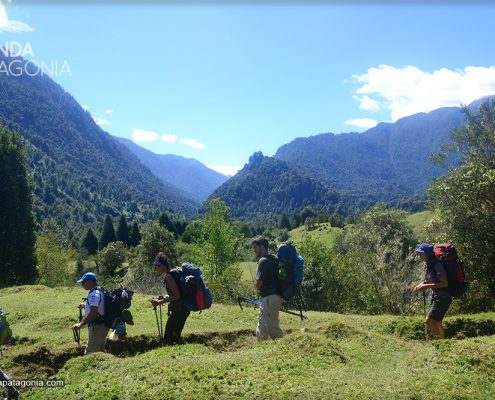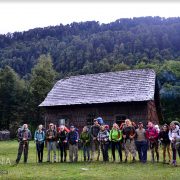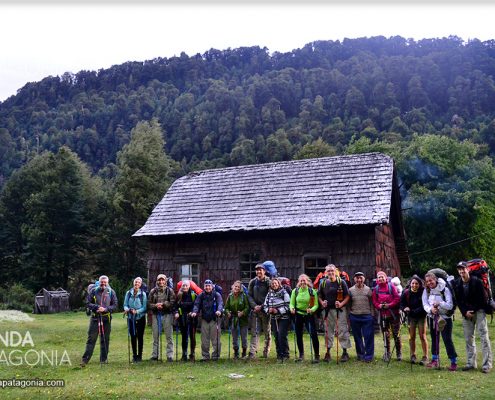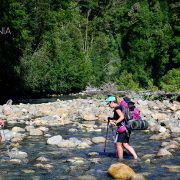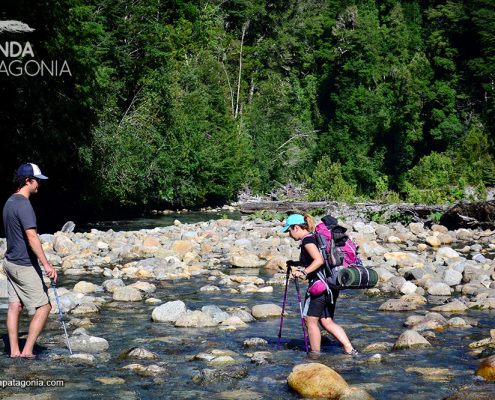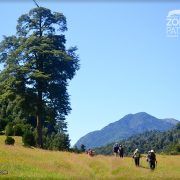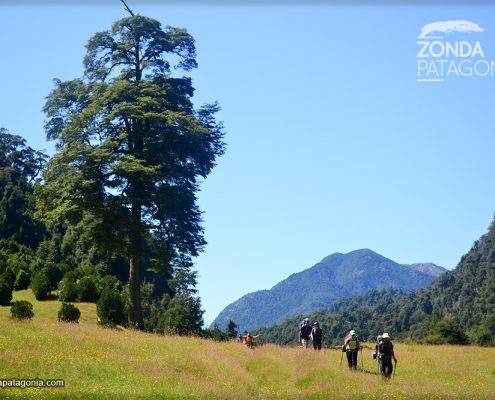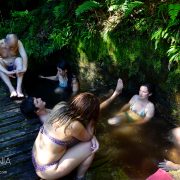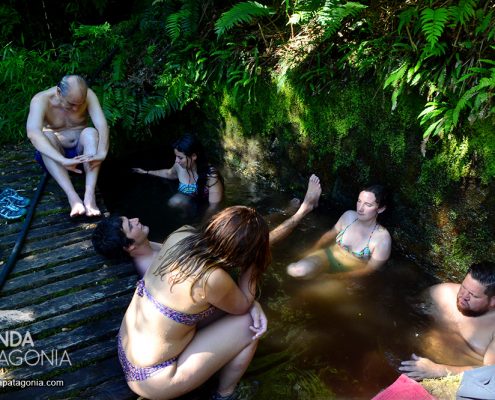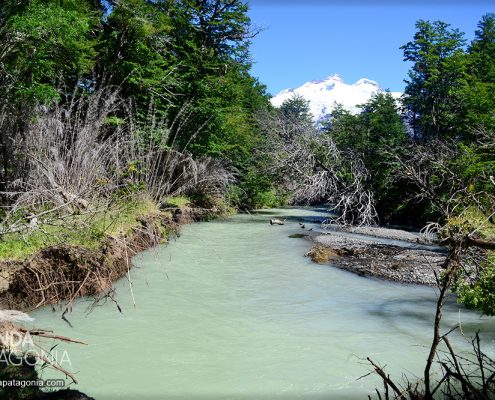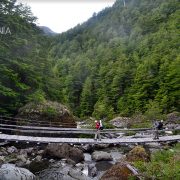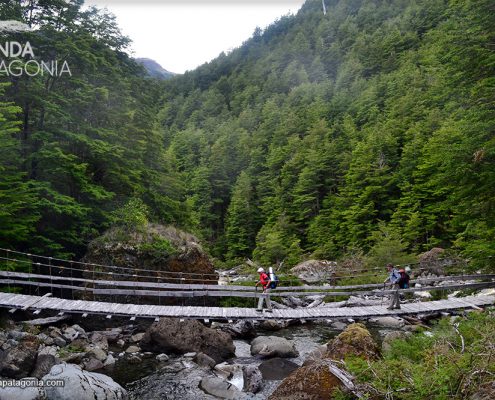Andean Crossing – Bariloche to Puerto Varas
Andean Crossing – Bariloche to Puerto Varas
A legendary trek through the mountains to the sea from Argentina to Chile. We’ll begin at the base of the mighty Tronador volcano near Bariloche and end at the Reloncavi Fjord, an inlet of the Pacific Ocean, across the border in Chile. Our journey will take us through the Valdivian temperate rain forest, where we’ll stop for a soak in the Vuriloche natural hot springs along the way.
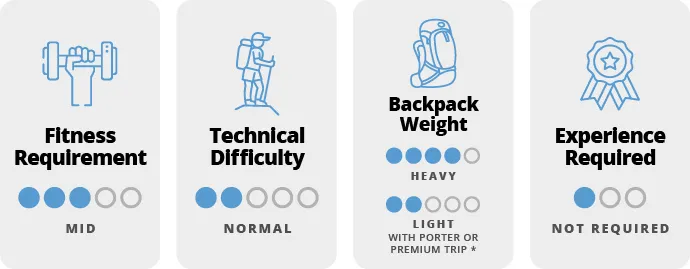
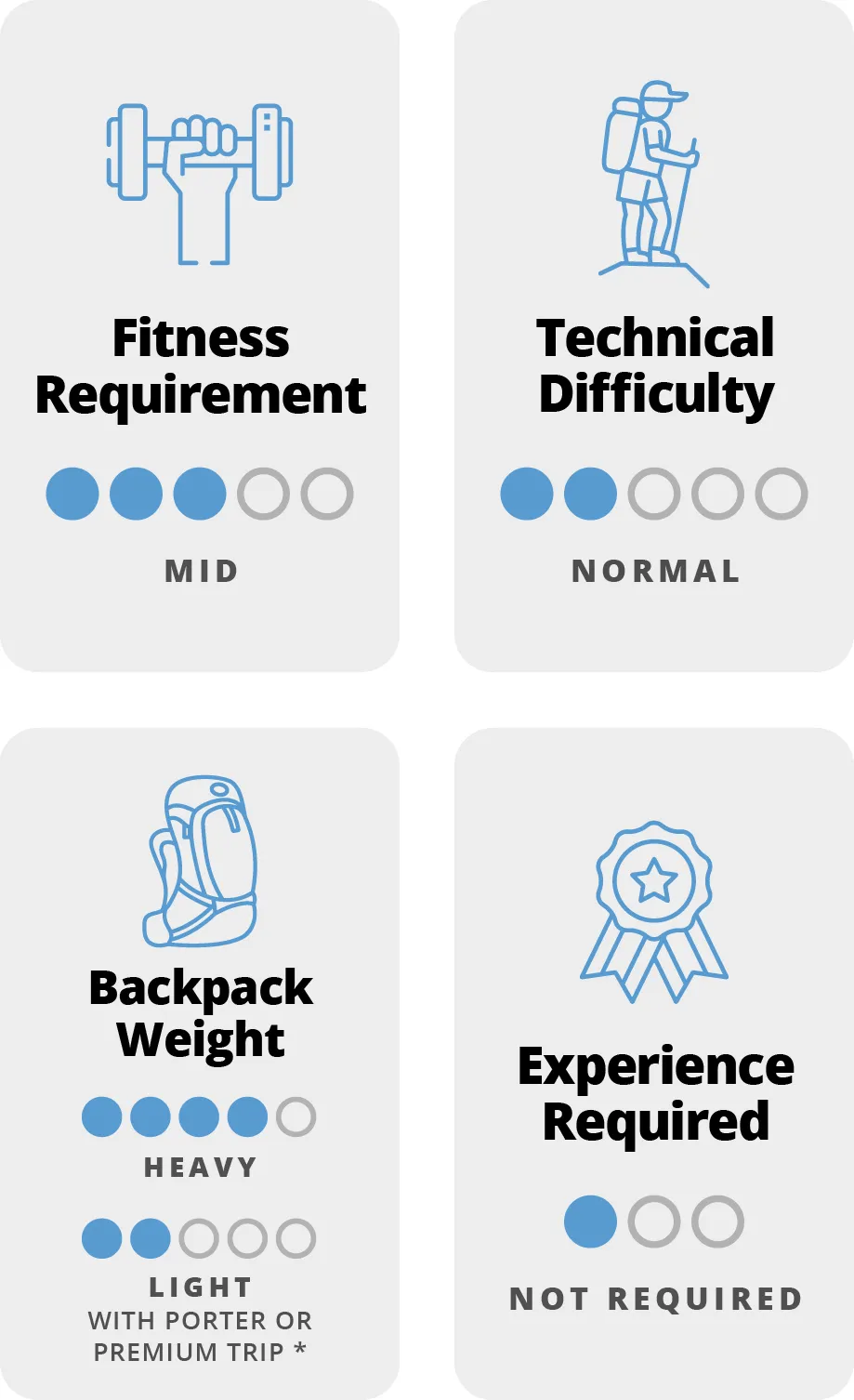
F.A.Q. Frequently asked questions about Andean Crossing – Bariloche to Puerto Varas
Do I need previous experience for this trip?
- Previous hiking experience is strongly recommended for this expedition, along with an adventurous spirit and a love for straying off the beaten track.
- The hike is considered to be technically easy but moderate in terms of physical challenge. Good physical health is essential.
What is included and what is not included?
Included:
- All meals during the hike
- All camping sites and tents are provided
- Transport from Bariloche to Pampa Linda to start of the hike and private transfer to Puerto Varas at the end of the hike
- Certified and experienced Mountain Guides with Wilderness First Responder Certificate which is up-to-date.
- National Park entry fee
- Accident insurance
Not included:
- Transport to Bariloche and from Puerto Varas to your next destination
- Accomodation in Bariloche or Puerto Varas
- Personal hiking gear
- Travel insurance
GEAR LIST - What can I rent?
- Donwload the Gear List
- 60-80 litres backpack
- Waterproof, well worn-in walking boots – Good quality, comfortable footwear is essential. Whatever you wear on your feet the most important thing is comfort. It is vital to ensure your boots are well worn in and lightweight. Ankle support and waterproofing is recommended but if you already have something comfortable with good grip on rocks then don’t go rushing out to buy new boots – you are better off with your well-worn in pair!
- Shoes for river crossing/camp shoes: Crocs are ideal!
- Walking poles
- Sleeping bag (0-10 degrees)
- Sleeping matt
- Walking clothing in layers
- 1-2 pairs of hiking pants (zip-off pants recommended
- 1 waterproof rain jacket
- 2 T-shirts short sleeve
- 1-2 t-shirts long sleeve
- 1 Polar Fleece
- 1 down jacket
- 3 pairs of thick hiking socks
- Warm beanie or woollen hat
- Light warm gloves
- Sunscreen, sunglasses and sunhat
- Thermal underwear x 1 pair (1 top and 1 bottom to sleep)
- Thermal wear is highly recommended, being light, warm and will keep you warm at night.
- Swim wear
- Head torch
- Water bottle: 1 x 1.5 litre bottle or hydration bladder
- Personal medication
- Camera and spare batteries, memory cards or film.
(Please note: there are no electrical outlets on the trek so make sure you fully charge and or have spare batteries. )
- Snacks: Some snacks are provided during the trek but you may like to bring one or two extras just in case. If you have a dietary requirement then be recommend bringing some suitable snacks from home. We will accommodate you for breakfast, lunch and dinner however for snacks it’s recommended to bring some just to be safe.
- Toilet paper: Most important! Also, small plastic bags or zip lock bags for rubbish which you will need to hold on to until the end of the trek.
- Wet wipes and or face wipes: These are an essential and will come in handy after a long day of trekking and no showers.
- Plastic bags: To keep your belongings and clothes dry (wrap everything in plastic bags). RECOMMENDED: – Soft and/or hard copies of all important documents e.g. air tickets, passport, vaccination certificate, etc. and keep the hard copies separate from the originals. While not valid, a copy makes it very much easier to obtain replacements if necessary
- Eating Utensills: bowl, cup, cutlery
- Available for rent
- Sleeping bag
- Sleeping matt
- Walking poles
How much weight will I carry?
A good level of physical fitness is required. You will need to be able to carry your own 60-75 litre backpack with 10-12 kg. At the welcome meeting we will check everyones backpack to make sure you are taking with you only what you need, no more, no less.
How can I book the trip?
- Fill in the BOOKING FORM (link).
- Pay the booking fee to secure your place (Bank data or credit card details at the end of the booking form).
- Fill in the Medical Form (link).
- Final payment must be made 1 month prior departure.
MEETING POINT? WHAT TIME?
- The Welcome meeting is in Perikos Hostel (Morales 555 Bariloche) at 4p.m. the day before the hike. This meeting is compulsory. Please bring all the gear for the hike. The objective is: Equipment check.
Where can I stay in Bariloche (first night) and Puerto Varas (last night)?
- The accomodation before and after the hike is not included in the trip price. You decide where you want to stay. Please remember to book in advance since it is high season.
- Recommendations:
- San Carlos de Bariloche
- Periko´s Hostel: http://www.perikos.com/
- Hotel Las Marianas: https://www.hosterialasmarianas.com.ar/es-es
- Puerto Varas
- Casa Azul Hostel: http://www.casaazul.net/
- Radisson Park Inn: https://www.radissonhotels.com/en-us/hotels/park-inn-puerto-varas
- San Carlos de Bariloche
How do I get back to Bariloche from Puerto Varas?
- The trip includes up to Puerto Varas so if you want to come back you can take a bus back the same day or stay and enjoy the wonders of Chile.
- Check viabariloche.com.ar/ or andesmar.com/ for tickets to Bariloche. We arrive around noon to Puerto Varas on the last day and Via Bariloche has a 2 p.m. service if you wish to get back the same day.
How many people are on the trip?
The expedition runs from 6 to 14 travelers. We like to keep groups small to enjoy nature at its best.
How far do we walk and for how long?
The Vuriloche Pass is approx. 70 km long. We walk an average of 13 km per day. Some easy days and some moderate ones. Roughly 5-6 hours daily. Each group will find its pace and well stick to that. Long Patagonia days allow us to take our time and therfore we will be hiking without any rush.
NEXT DEPARTURES
Dates 2024/25
Normal Departures
27 Dec 2024 to 2 Jan 2025 (New Year!)
26 of Jan to 2 Feb 2025
9 to 15 of Feb 2025
23 of Feb to 1 of March 2025
2 to 8 of March 2025
16 to 22 of March 2025
Premium Departures
2 to 8 of Feb 2025
NEXT DEPARTURES
Dates 2024/25
Normal Departures
27 Dec 2024 to 2 Jan 2025 (New Year!)
26 of Jan to 2 Feb 2025
9 to 15 of Feb 2025
23 of Feb to 1 of March 2025
2 to 8 of March 2025
16 to 22 of March 2025
Premium Departures
2 to 8 of Feb 2025
The price is in US-Dollars. We will ask you to pay a 30% deposit to secure your place. The rest (70%) must be payed max. 1 month prior departure.
Methods of payment :
– VISA or MASTERCARD (+3%)
– International bank transfer
We will send you the payment information via internet after you have completed the booking form (link).
Remember that you do not need previous experience to participate but you need to be physically fit.
General information
- Activity : Hiking
- Starting and finishing point : San Carlos de Bariloche (Argentina) to Puerto Varas (Chile)
- Duration : 8 days
- Itinerary : Pampa Linda to Cayutúe Lake via Vuriloche Pass
- Accommodation : 6 nights tent camping (basic facilities)
- Previous experience required : low
- Fitness level required : medium
- Group size : max. 14 people
- Minimun age : 14 years
- Distance : 56 km
- Altitude at starting point : 1075 m
- Altitude at highest point : 1520 m
- Maximum ascension per day : 500 m
Travel itinerary
Day 1: Saturday
Welcome meeting and equipment check. Please bring all your hiking gear to the meeting. (Dinner and night in Bariloche is not included)
Day 2: Sunday
We will go through the border control on the Argentinian side before we start. The path starts off low and follows the Cauquenes River upstream through Bamboo and Nothofagus forest.
After our first river crossing we start our slow climb up the pass. We stay inside the forest most of the time until we reach the border monument. Here you officially cross into Chilean territory. Half an hour later we reach our final destination for the day. It is an adventurous journey across the pass and an elevation of 500 metres is gained. In the evening we set up our camp close to the Chilean border control and enjoy some well-earned rest and tasty food.
Day 3: Monday
You will see that vegetation slowly begins to change as we find some new species of plants and trees in Chile compared to the Argentinean side. Tonight we camp next to our friend, Don Oyarzo’s – a 200-year-old house. Don has been living in this residence for more than half a century and lives self-sustainably there all year round. He always has a story or two to tell and maybe he has some chicha (home-made liquor made from apples) or homemade cheese to share as well.
Day 4: Tuesday
Day 5: Wednesday
DAY OF REST!
Enjoy a day to relax and chill out. There is plenty of tasty food to be enjoyed, and when the hot springs get tiresome – if that is possible – change it up by taking a dip in the Esperanza River. The beauty of this spot makes for a perfect day of rest. You can go on short walks around the area, read a book, write in your dairy, help harvest some fruit on the other side of the river or introduce yourself to the concept of a siesta under a tree. It’s a tough life, isn`t?
Day 6: Thursday
We hike out through the rainforest that becomes thicker and bigger as we head towards West, following the Blanco River and passing several abandoned farmhouses. Today is a moderate day of hiking (approximately 6–7 hours; 14 km). In addition to the eye popping landscapes of the Rio Blanco Valley, a bonus of today’s route is the abundance of fruit trees. Feel free to pick some fresh apples or plums to snack on along the way. Reaching La Bandurria farm, we set up camp and settle into a relaxing evening in this remote spot. Your host, Tito Velazquez, is a young farmer with lots of experience in the area. He also happens to be the best Patagonian lamb chef which we have come across, so enjoy!
Day 7: Friday
From La Bandurria Farm we leave the Blanco Valley and follow the Conchas River south. This path has been used by settlers for centuries. Local farmers move cows and sheeps up the valley for the summer and bring them down over the winter.
The Patagonian rain forest is here at its best. The terrain is quite flat compared to other days so we move fast below the big trees. We camp by the river and enjoy the camp fire. Anyone up for a dip in the cristal clear river?
Day 8: Saturday
4 hours hike – After breakfast we face our last hiking day. We keep following the same river down crossing it twice to arrive to our last big uphill to descend to Cayutué Lake. This is a small lake with incredible views of Puntiagudo Volcano and other surrounding mountains. We are already very close to sea level and the terrain goes through some amazing Arrayan (bambi) forests.
Day 9: Sunday
From the lake it is an hour and a half until we reach our transportation. A private transport is waiting to take us to Puerto Varas (1.5 hours drive). Congrats, you have crossed the Andes! Anyone would like a beer?
End of expedition
